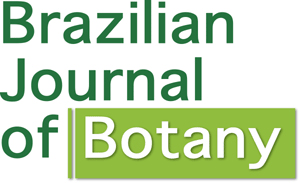Jacaranda copaia (Aubl.) D. Don is a pioneer tree widespread in the Brazilian Amazon, usually found colonizing forest gaps and altered areas, and the forest fragment edges. This study investigated aspects of the floral biology, breeding system and pollinators of J. copaia trees. Flowering lasts from August to November, during the low rainfall period extending up to four weeks per tree and 3-4 months for the population as a whole, characterizing a cornucopia flowering pattern. The fruit set ends in the beginning of the rainy season, with wind dispersed winged seeds. Fruit set from open pollination was 1.06% (n = 6,932). Hand pollination using self-pollen (n = 2,099) did not set fruits. Cross-pollination resulted in 6.54% fruit set (n = 2,524), representing six times more than the natural pollination rate (1.06%, n = 6,932). Flowers excluded from insect visitation (automatic self-pollination) did not set fruits (n = 5,372). Pollen tube growth down to ovary was detected under fluorescence microcoscopy in cross-pollinated and selfed pistils. The species is an obligate allogamous plant, with late-acting self-incompatibility system. Approximately 40 species of native bees visited the flowers, but the main pollinators were medium-sized solitary bees as Euglossa and Centris species due to the compatibility between their body sizes with the corolla tube, direct contact with the reproductive structures and high frequency of visits.
bees; floral biology; late-acting self-incompatibility (LSI); phenology; pollinators






